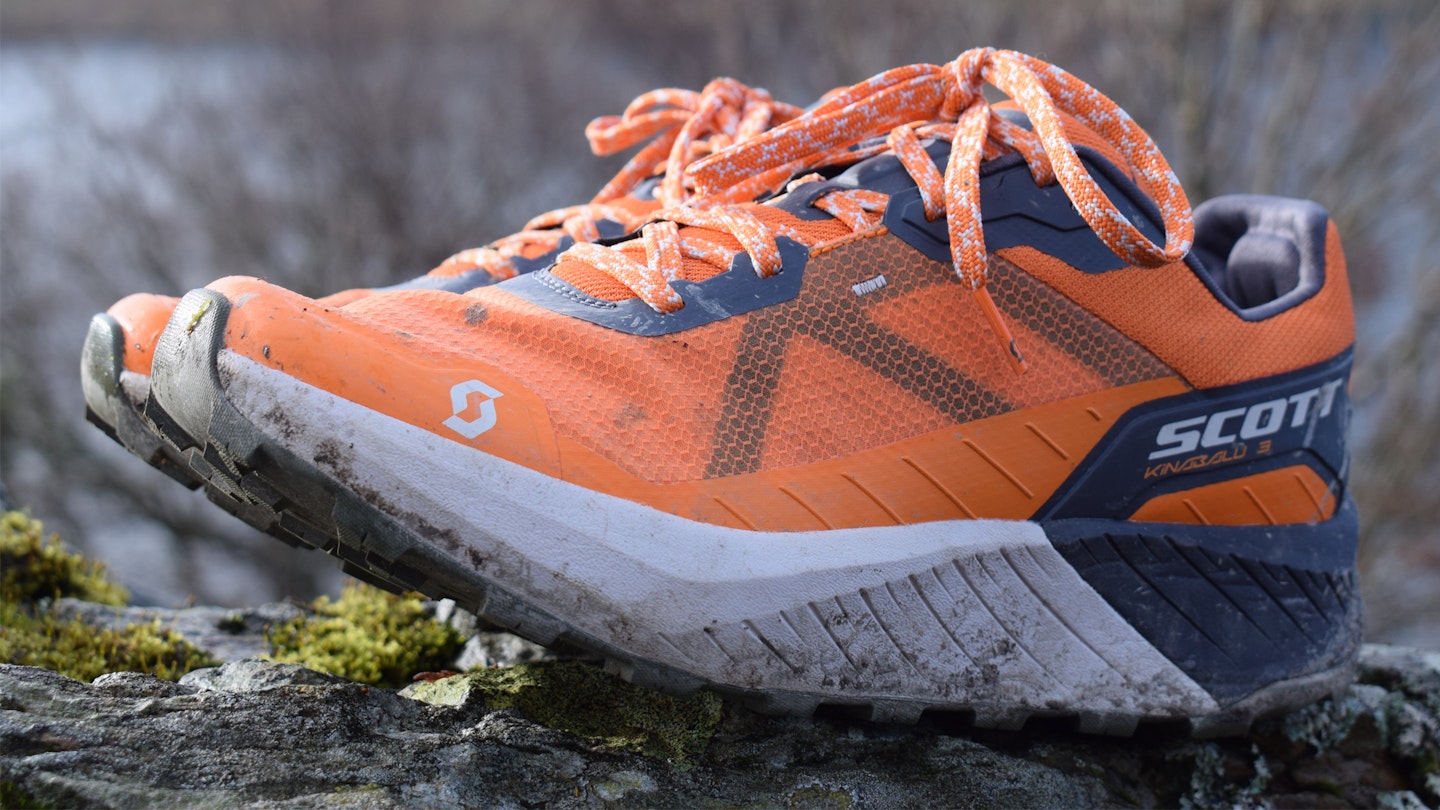New for 2024 in its third generation, the Scott Kinabalu 3 trail running shoe is back again with a “full re-design” and “improved comfort, protection and running efficiency”, according to the Swiss brand.
The end result is a solid-performing trail shoe that ticks all of the boxes – it’s grippy, comfy and protective, and a good option for most trail runners.
The standout feature is the midsole cushioning and rocker shape, which feels pretty agile, springy and energetic for a trail running shoe.
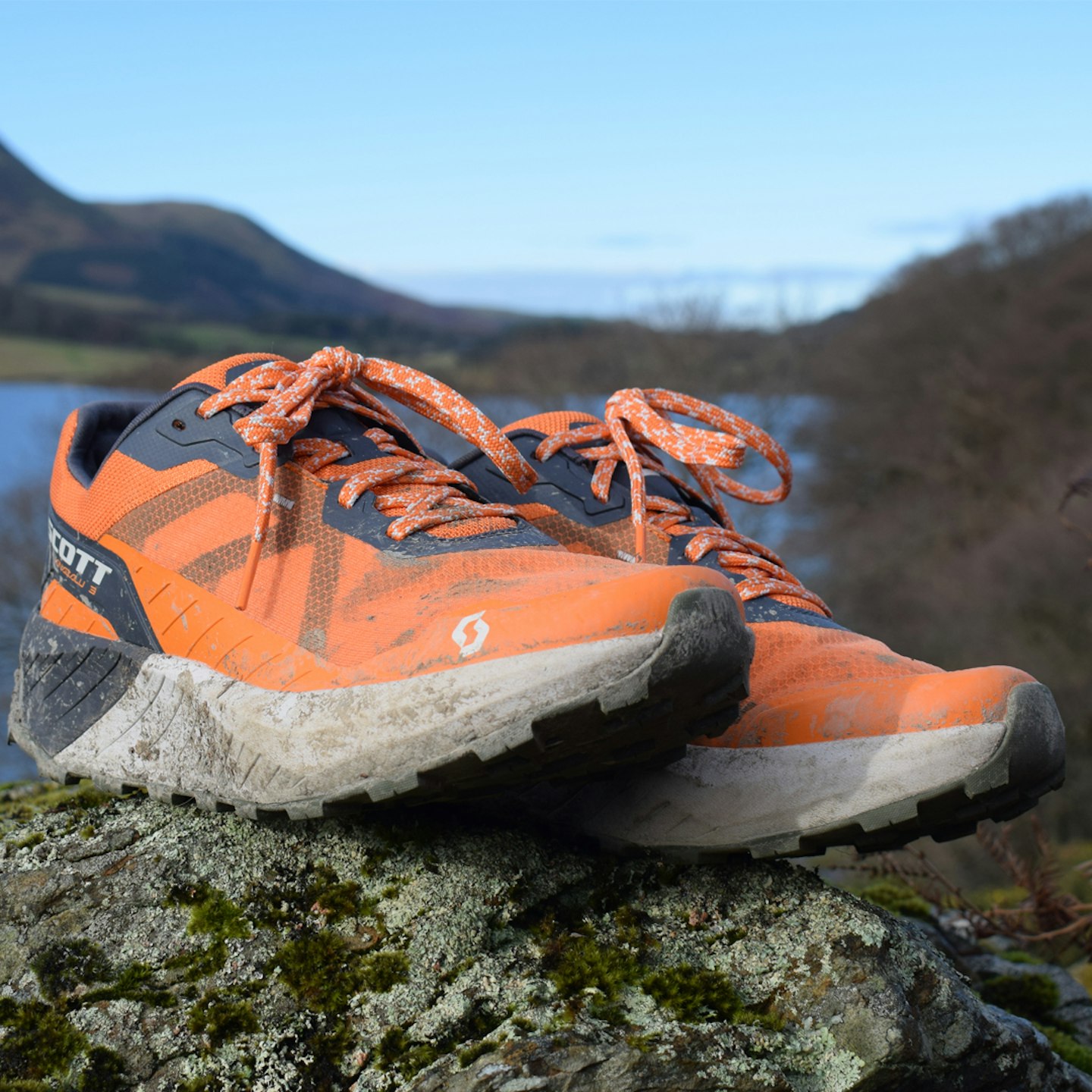 LFTO
LFTOwww.sportsshoes.com
Pros
- Excellent midsole
- Good cushioning
- Light
- Comfortable ride
Cons
- Not the most aggressive outsole
| Men's sizes | 6-13 |
| Women's sizes | 3-8.5 |
| Weight (men's UK 8) | 327g per shoe |
| Versions | GTX, non-GTX |
| Drop | 7mm |
| Stack height | 29.5mm heel, 22.5mm forefoot |
| Lugs | 3.5mm |
Upper
The upper of the Scott Kinabalu uses a common, well-proven design. The forefoot and top of the toe are made from a lightweight ripstop mesh upper, which is soft and flexible – thus providing comfort where you need it most.
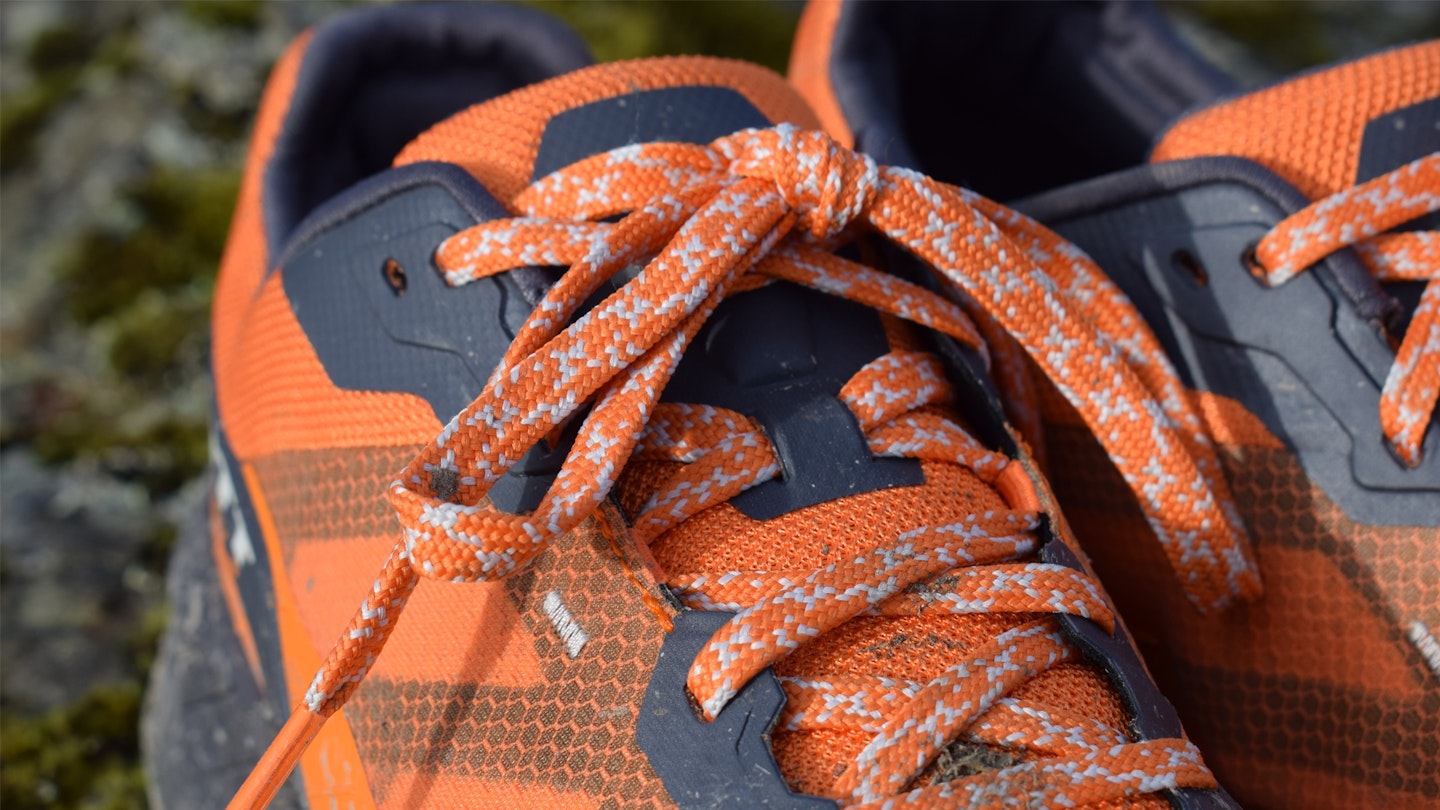
Sturdier material overlays made from thermoplastic polyurethane – what Scott calls the shoe’s “support cage” – are used at the heel and toe for added protection and robustness. The toe guard is quite minimalist, but provides just enough protection from rocky terrain, while the heel counter is reasonably strong and firm, yet has a touch of flex so the shoe doesn’t feel too rigid and structured in-use.
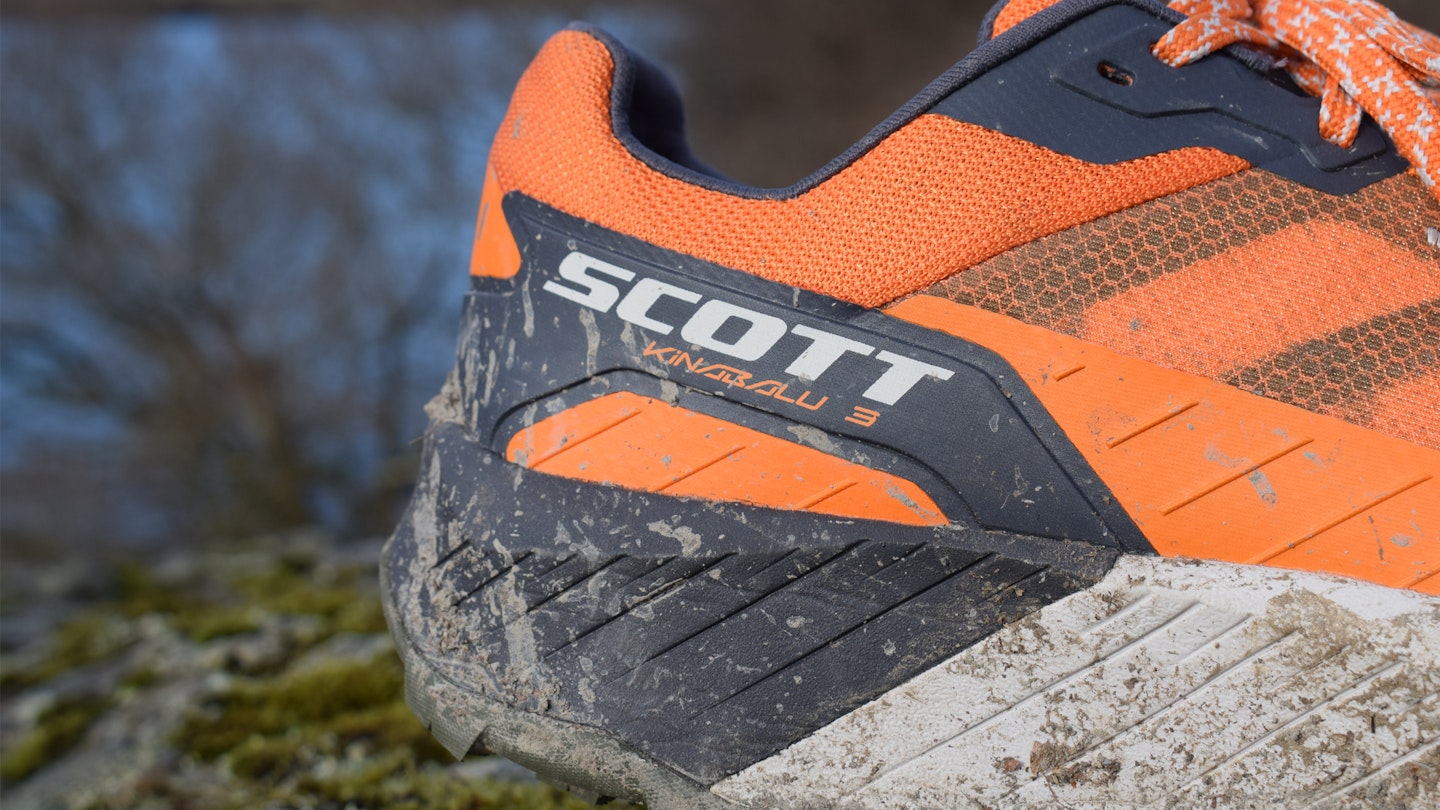
Shop this product
The tongue is comfy and nicely padded, and the ankle cuff has an extra layer of plush padding. We found this enhanced comfort levels further.
Midsole
There is some first-rate technology in the midsole of the Scott Kinabalu 3, which feels quite bouncy, cushioned and energetic underfoot for a trail shoe. There is a nice roll to each step too, thanks to the rocker shape which helps you flow efficiently with each stride.
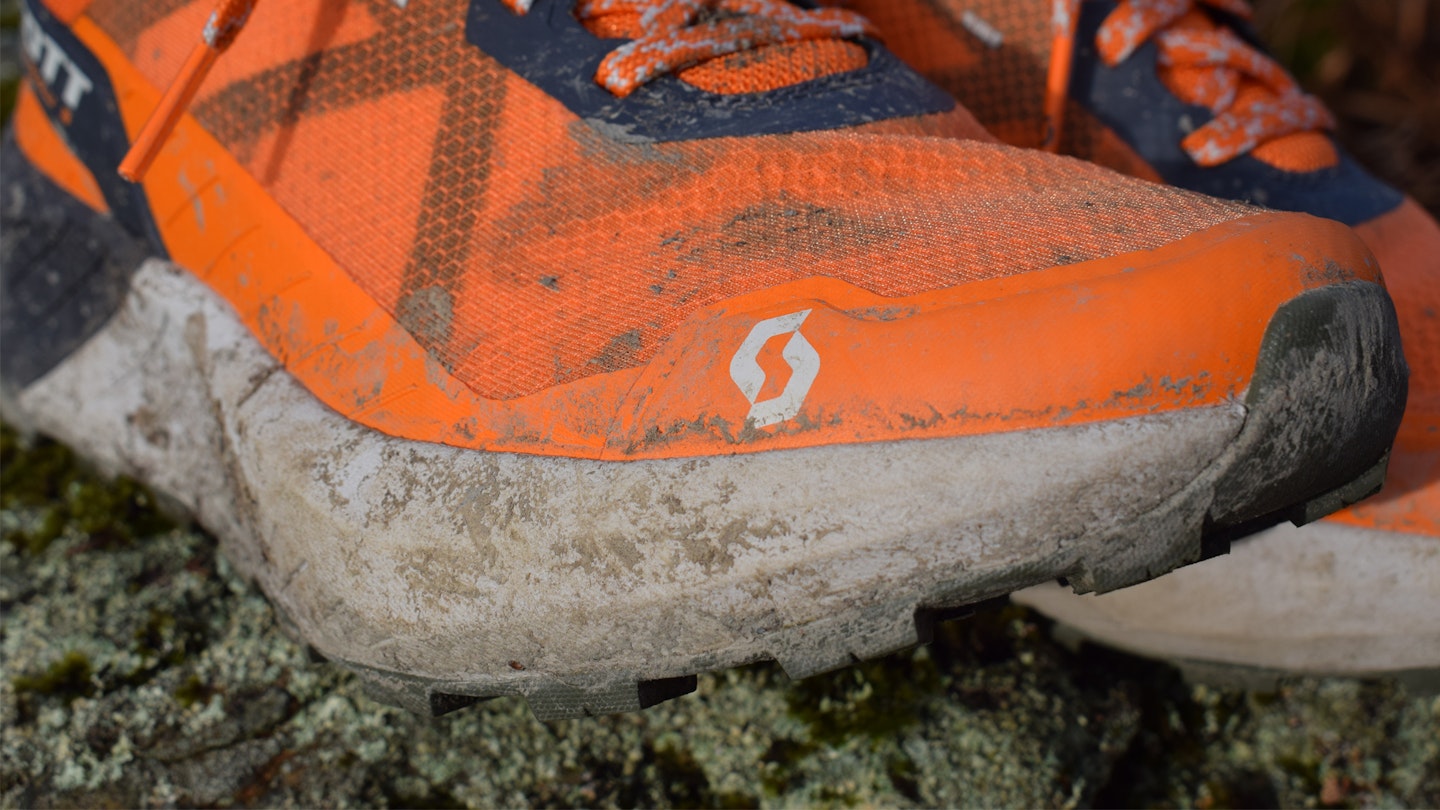
This midsole is made from a dual-density foam for maximum cushioning. The type of foam used is called Scott Kinetic Foam, a lightweight, responsive foam that provides 14% more energy than standard EVA. The end result, according to Scott, is a “plush but stable and more dynamic ride”, with enhanced energy return “so you can run faster for longer”.
Certainly during our test runs around Loweswater and in the north-western fells of Sale Fell and Ling Fell, we felt springy and agile in the Kinabalu 3s, with good leg turnover and a light sensation.
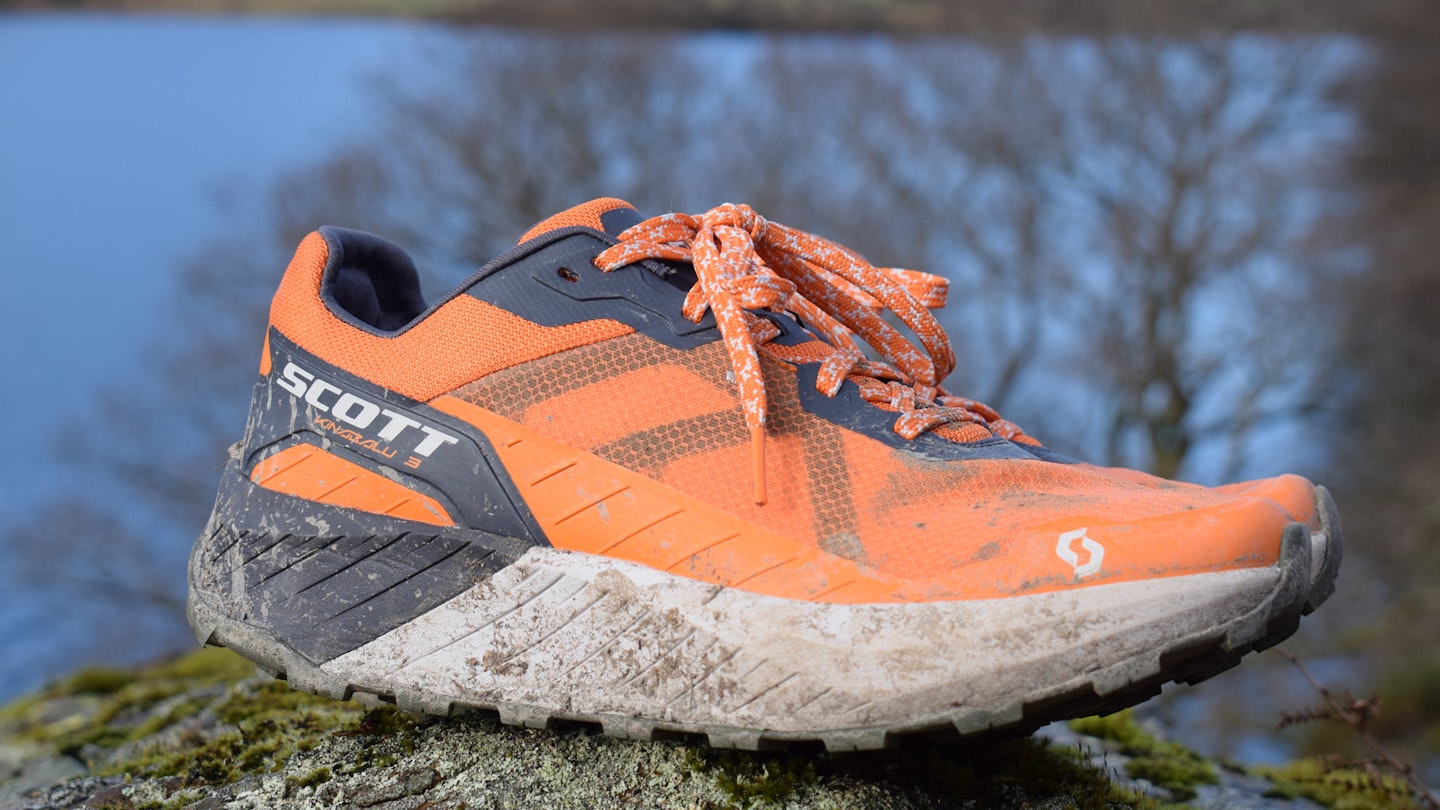
Shop this product
At the same time we didn’t feel unprotected, although the levels of support and stability were reduced compared to more robust options such as the Brooks Cascadia 17. The cushioned underfoot sensation somewhat reduced “ground-feel” during our test runs, but overall the Kinabalu delivered a decent balance between cushioning and sensitivity.
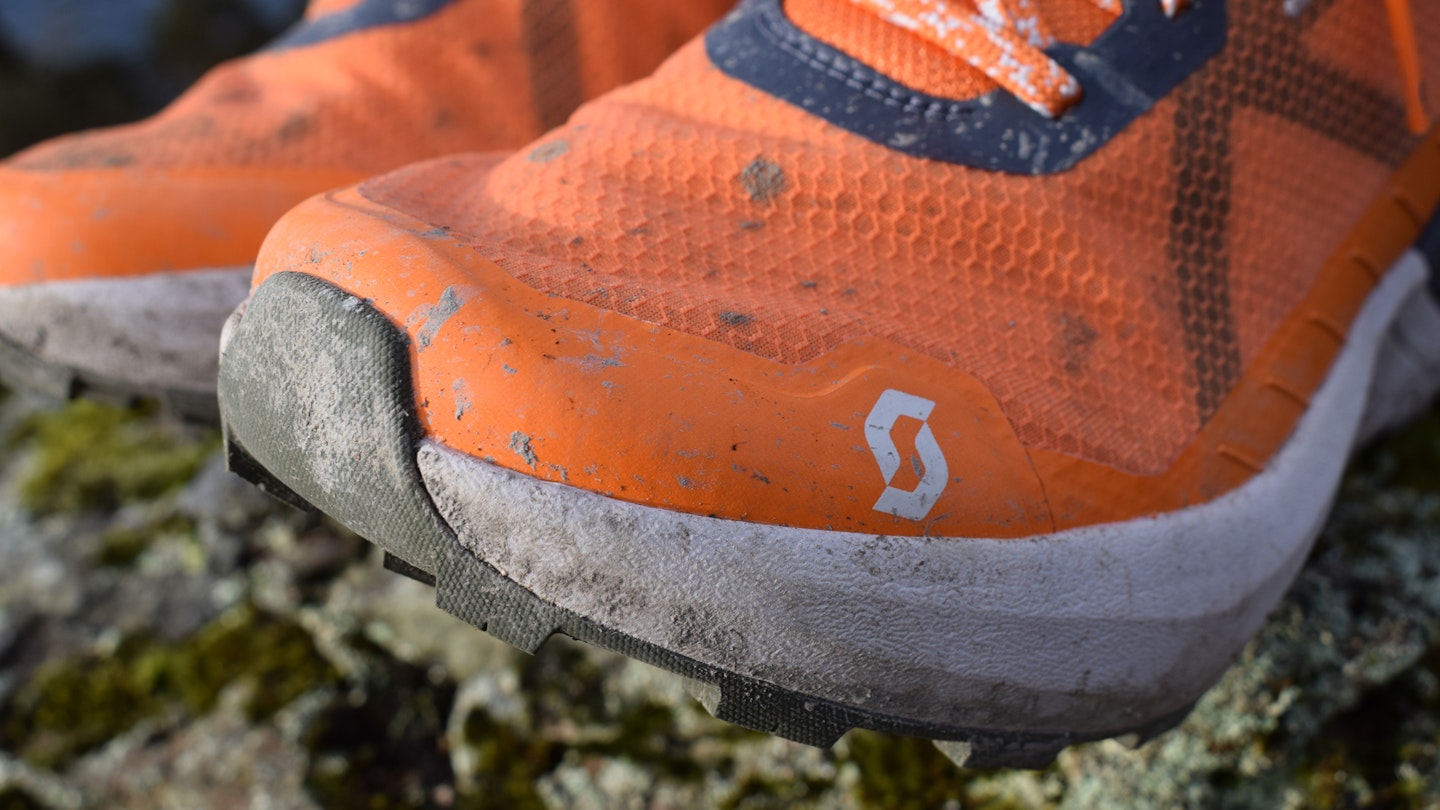
In terms of the rocker shape, the Kinabalu 3 features Scott’s Evolved Rocker2 (ER2) technology that has been 10 years in the making.
This rocker creates an efficient running platform, reducing wasted energy from heel strike impacts and instead encouraging good forward momentum with each step. In terms of the shoe’s overall rigidity, you get quite a bit of flex at the toe, but the back two-thirds of the shoe has a stable, firm foundation with almost no bend.
Outsole
The outsole of the Scott Kinabalu 3 is not a third party unit from an external brand such as Vibram. Instead you get a proprietary sole unit from Scott, featuring chevron-shaped lugs with a 3.5mm depth.
Scott describes this unit as a “versatile trail outsole”, featuring “fully re-designed lugs so that the rubber outsole bites into the different levels of rocks, roots and trail features to optimise the ground contact and enhance traction”.
Shop this product
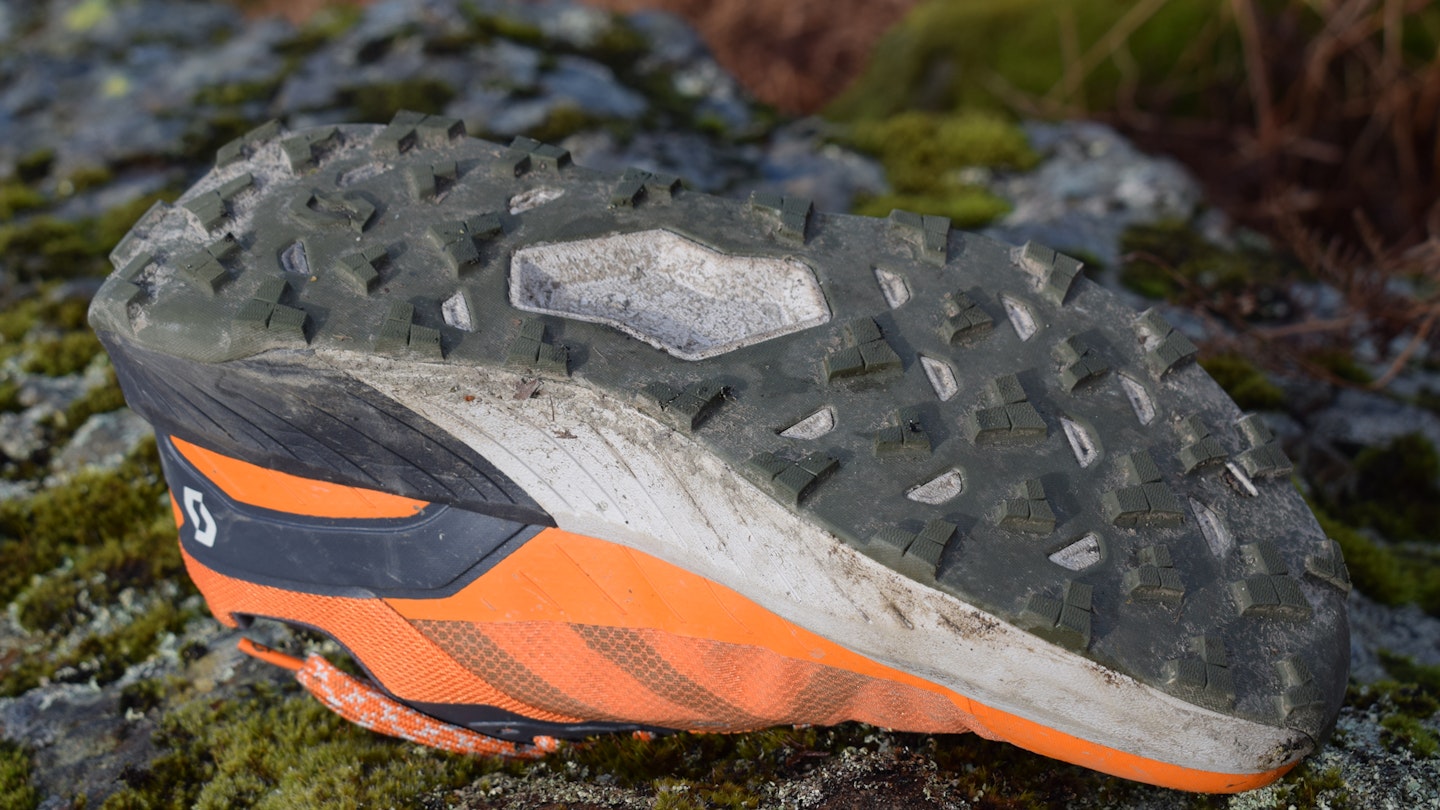
It’s not the most aggressive tread pattern we’ve ever seen, and the cleat depth is slightly on the shallow side by a millimetre or two. We found the traction solid enough on a mix of trails around the Lake District during our test runs.
But Scott admits the sole unit is suited to “hardpack rolling trails”, or in other words, paths that are compressed and firm underfoot. So if you’ll be running mostly on grass and mud, the Kinabalu 3 might not be the shoe for you.
Price and competition
Coming in at £150, The Kinabalu 3 sits moderately high on the expense chart for top level shoes. It's not the priciest footwear on the market, (plus Sportsshoes does tend to list them with a discount) but it certainly isn't cheap.
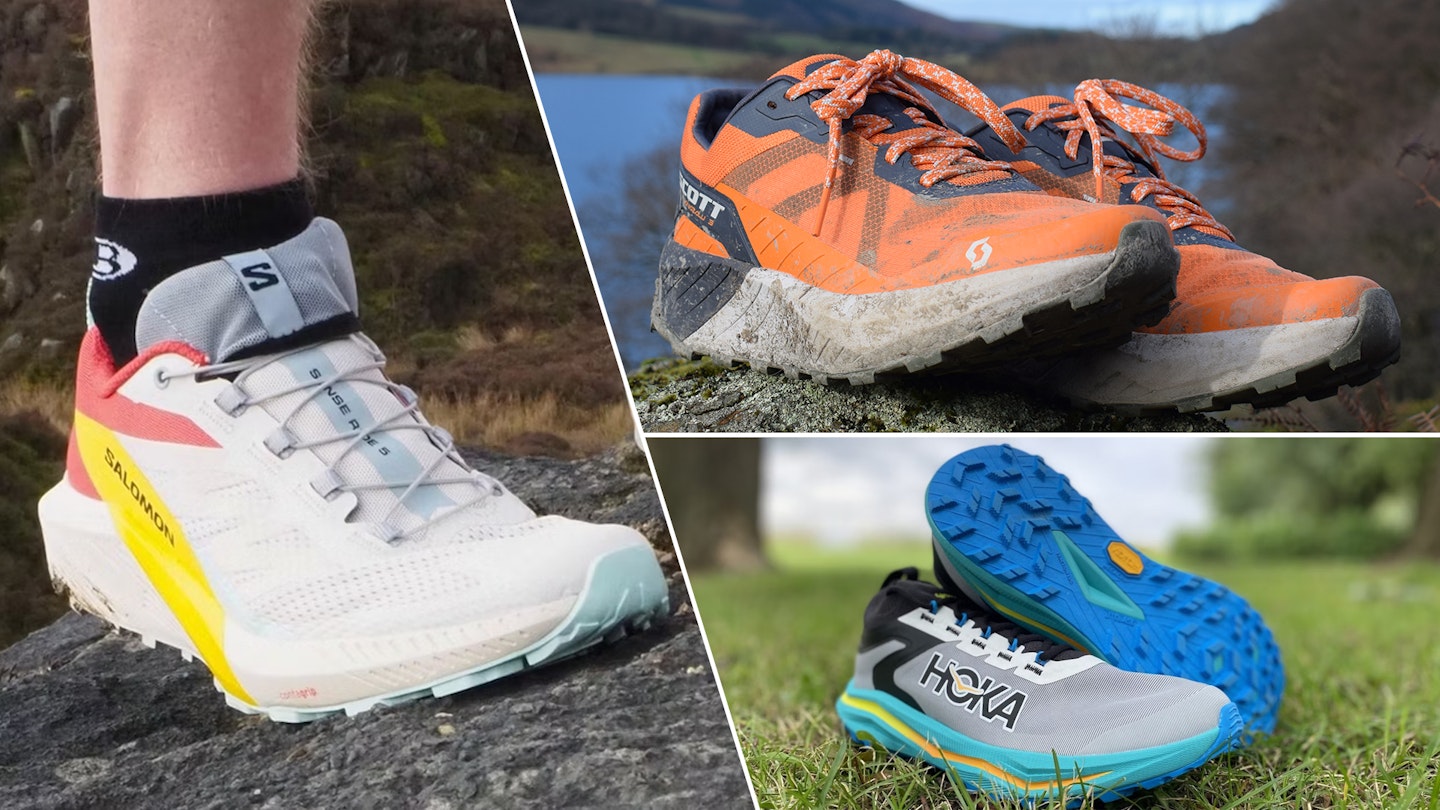
This shoe's cushioned midsole and relatively short lugs gives it a similar feel to the Salomon Sense Ride 5, which also has fairly tame lugs and performs best on rocky or hard-packed terrain. Another option in this realm would be the Hoka Zinal 2, though while it may match the Kinabalu 3 in cushioning, and undercut its price by £30, the Zinal certainly couldn't compete with the durability of the Kinabalu, and so may not last as long.
Shop this product
Sustainability
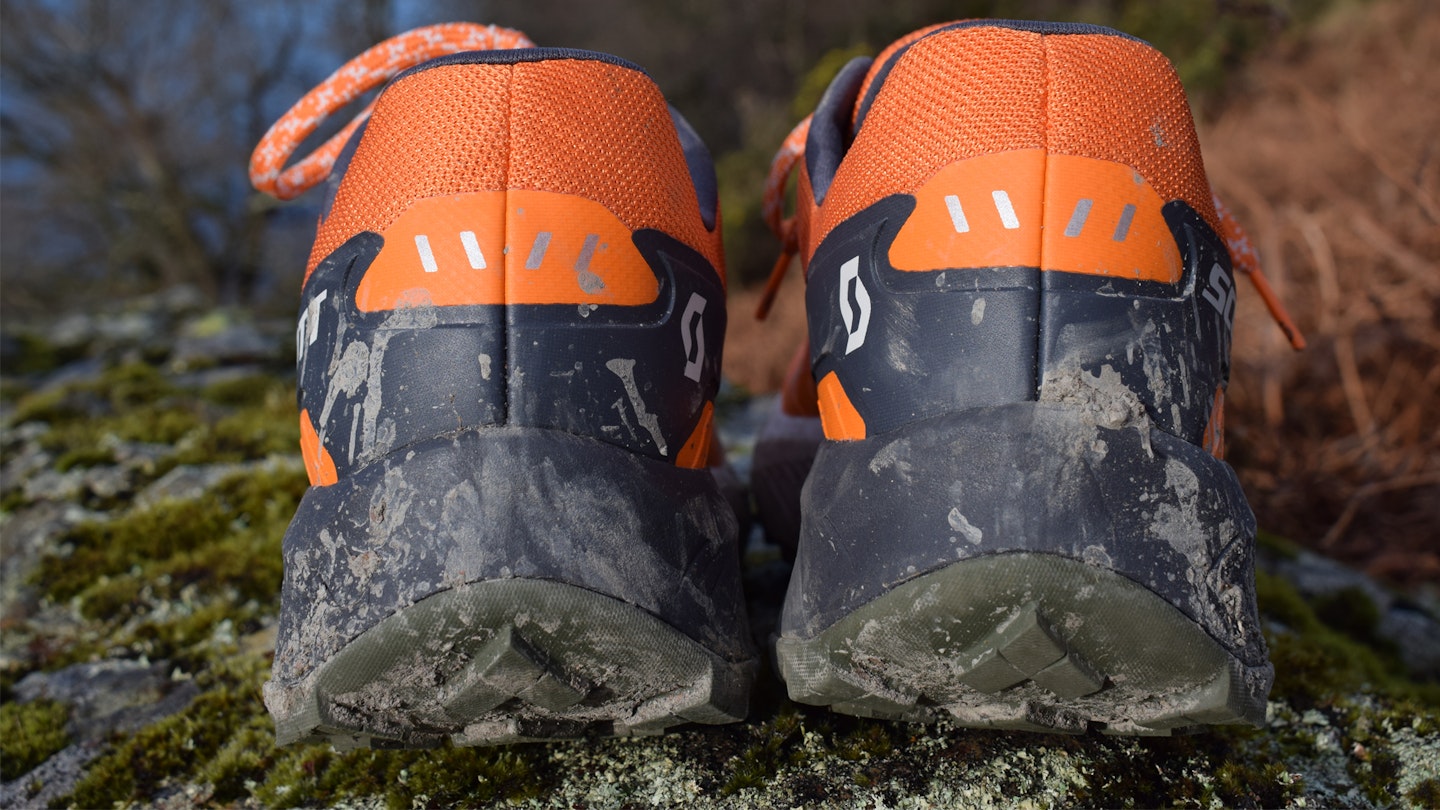
There are no recycled materials in the Scott Kinabalu 3 and, therefore, its eco credentials are not particularly strong. For sustainability conscious trail runners, the Scott Ultra Explore is a far better option. It features a recycled upper, laces, footbed, midsole and outsole, and a partially bio-based carbon plate, which collectively mean 58% of the product’s composition by weight is recycled.
Verdict
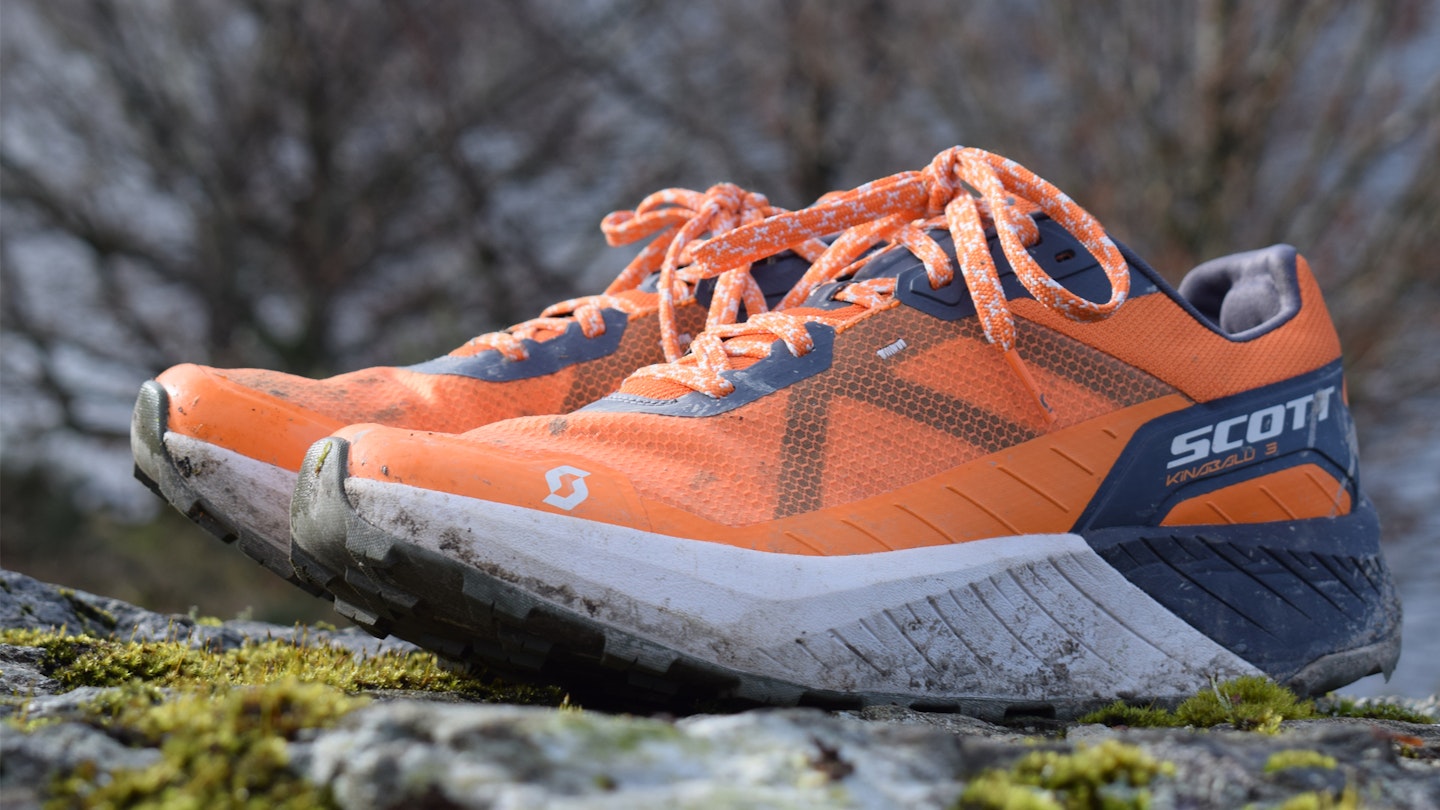
A well-designed trail shoe with good cushioning and an energetic ride – but the outsole isn’t the most aggressive. Definitely ideal for road-to-trail running.
Shop this product
How we tested
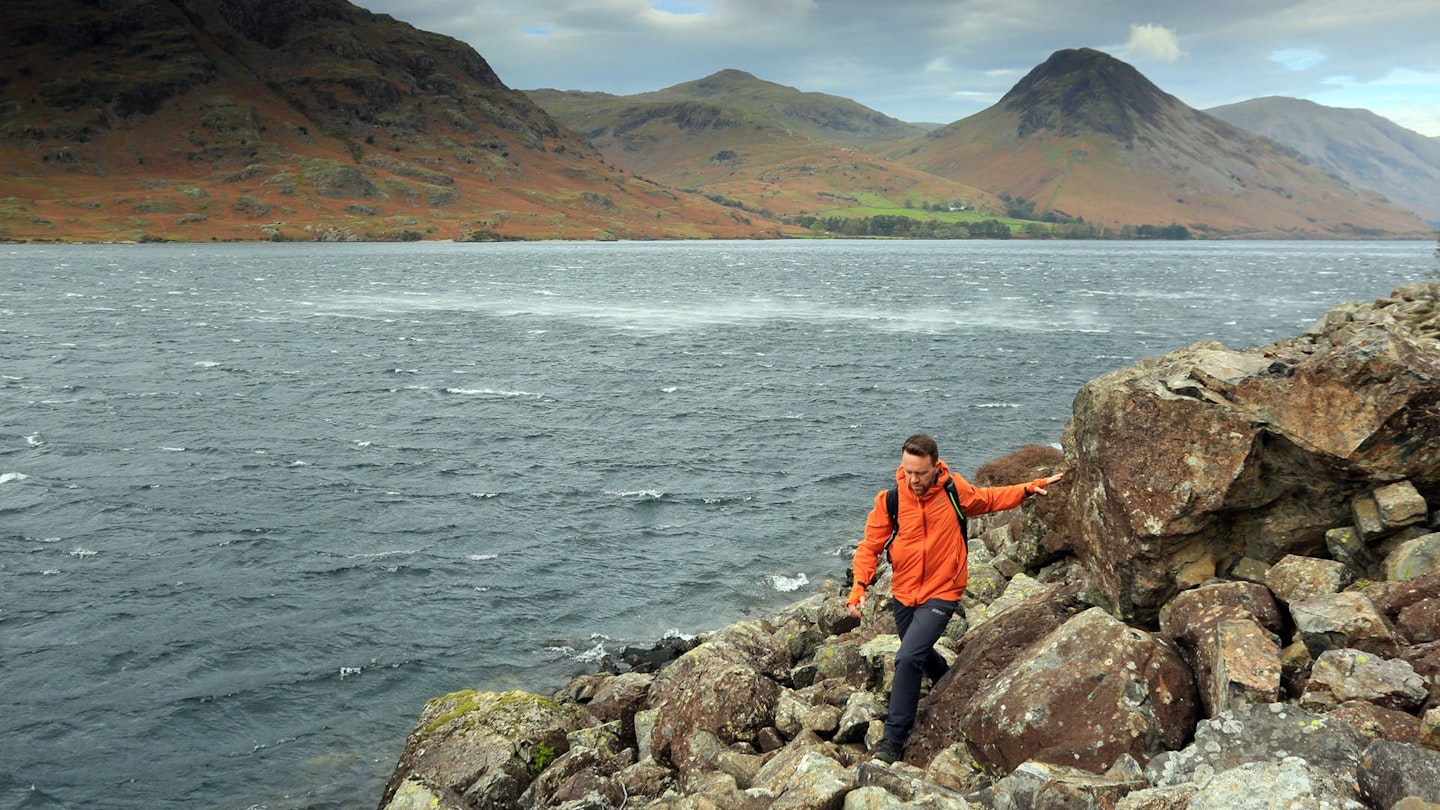
Our tester for the Scott Kinabalu 3 trail running shoe was James Forrest. James is one of our long-time freelance gear testers both for LFTO and our print magazine, Trail. When he's not climbing mountains or walking to the moon and back, he's running on his local trails in the Lake District.
As well as being a prolific long-distance walker and runner, James is also one of the most high-profile outdoor writers in the UK.
